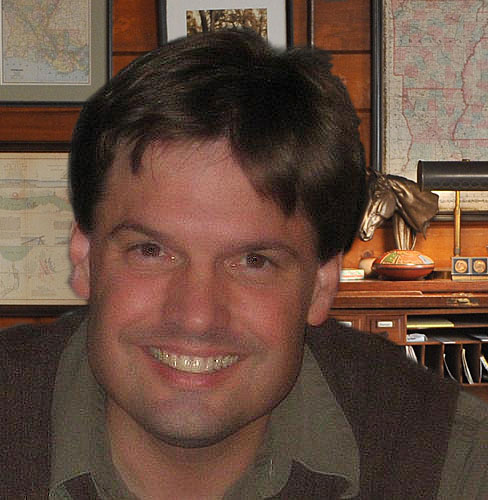[powerpress]
Episode 6- Man and Woman in the Beginning

Archbishop Lucas offers insights on the US Catholic Catechism for Adults Chapter 6:
It is Jesus Christ who frees us from Original Sin and our own actual sins. By Baptism, we share in the redemptive act of Jesus’ death and Resurrection, are freed from Original Sin, and are strengthened against the power of sin and death. We are reconciled to God and made members of his holy people, the Church.
The Most Reverend George J. Lucas leads the Archdiocese of Omaha.
For other episodes in the visit our Archbishop George Lucas page
This programs is based on:
More information can be found here.
We wish to thank the USCCB for the permissions granted for use of relevant material used in this series.
Also we wish to thank Sharon Doran and Chuck Adams for their vocal talents in this episode.
This entry was posted on Monday, January 12th, 2015 at 12:38 pm
You can follow any responses to this entry through the RSS 2.0 feed.
[powerpress]
Msgr. Esseff leads us through a year-end examination of conscious.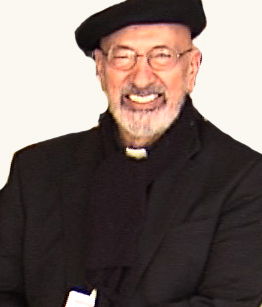
Here are some scripture to reflect on:
Reading 1 1 jn 2:3-11
Beloved:
The way we may be sure that we know Jesus
is to keep his commandments.
Whoever says, “I know him,†but does not keep his commandments
is a liar, and the truth is not in him.
But whoever keeps his word,
the love of God is truly perfected in him.
This is the way we may know that we are in union with him:
whoever claims to abide in him ought to walk just as he walked.
Beloved, I am writing no new commandment to you
but an old commandment that you had from the beginning.
The old commandment is the word that you have heard.
And yet I do write a new commandment to you,
which holds true in him and among you,
for the darkness is passing away,
and the true light is already shining.
Whoever says he is in the light,
yet hates his brother, is still in the darkness.
Whoever loves his brother remains in the light,
and there is nothing in him to cause a fall.
Whoever hates his brother is in darkness;
he walks in darkness
and does not know where he is going
because the darkness has blinded his eyes.
Colossians, chapter 3
Renunciation of Vice.*
5Put to death, then, the parts of you that are earthly:c immorality, impurity, passion, evil desire, and the greed that is idolatry.*
6Because of these the wrath of God* is coming [upon the disobedient].d
7By these you too once conducted yourselves, when you lived in that way.
8But now you must put them all away:* anger, fury, malice, slander, and obscene language out of your mouths.e
9Stop lying to one another, since you have taken off the old self with its practicesf
10* and have put on the new self, which is being renewed, for knowledge, in the image of its creator.g
11Here there is not Greek and Jew, circumcision and uncircumcision, barbarian, Scythian,* slave, free; but Christ is all and in all.h
12Put on then, as God’s chosen ones, holy and beloved, heartfelt compassion, kindness, humility, gentleness, and patience,i
13bearing with one another and forgiving one another, if one has a grievance against another; as the Lord has forgiven you, so must you also do.j
14And over all these put on love, that is, the bond of perfection.k
15And let the peace of Christ control your hearts, the peace into which you were also called in one body. And be thankful.l
16Let the word of Christ dwell in you richly, as in all wisdom you teach and admonish one another, singing psalms, hymns, and spiritual songs with gratitude in your hearts to God.m
17And whatever you do, in word or in deed, do everything in the name of the Lord Jesus, giving thanks to God the Father through him.n
This entry was posted on Monday, December 29th, 2014 at 3:26 pm
You can follow any responses to this entry through the RSS 2.0 feed.
[powerpress]
USCCA5- Episode 5-Â I Believe in God
Archbishop Lucas offers insights on the US Catholic Catechism for Adults Chapter 5:
Revelation tells us that he living and personal, and profoundly close to us in creating and sustaining us. Though he is totally other, hidden, glorious, and wondrous, he communicates to us through creation us and reveals himself to us through the prophets and above in Jesus Christ, whom we meet in the Church, especially in Scripture and the Sacraments.  In many ways,  God speaks to our hearts where we may welcome his loving presence.
The Most Reverend George J. Lucas leads the Archdiocese of Omaha.Â
For other episodes in the visit our Archbishop George Lucas page
This programs is based on:
More information can be found here.
We wish to thank the USCCB for the permissions granted for use of  relevant material used in this series.
Also we wish to thank Omar Gutierrez and Denise Wharton  for their vocal talents in this episode.
This entry was posted on Monday, December 29th, 2014 at 3:11 pm
You can follow any responses to this entry through the RSS 2.0 feed.
[powerpress]
Episode 6- Great Works in Western Literature with Joseph Pearce – Jonathan Swift
Gulliver’s Travels by Jonathan Swift is one of the greatest satirical works ever written. Through the misadventures of 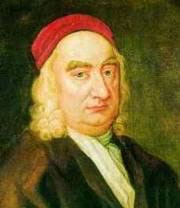 Lemuel Gulliver, his hopelessly “modern†protagonist, Swift exposes many of the follies of the English Enlightenment, from its worship of science to its neglect of traditional philosophy and theology. Swift’s satire on the threats posed by the Enlightenment and the embryonic spirit of secular fundamentalism makes Gulliver’s Travels priceless reading for today’s defenders of tradition.
Lemuel Gulliver, his hopelessly “modern†protagonist, Swift exposes many of the follies of the English Enlightenment, from its worship of science to its neglect of traditional philosophy and theology. Swift’s satire on the threats posed by the Enlightenment and the embryonic spirit of secular fundamentalism makes Gulliver’s Travels priceless reading for today’s defenders of tradition.
Based on the Ignatius Critical Edition, this series examines, from the Judeo-Christian perspective, the life,the times, and influence of authors of great works in literature .

Joseph Pearce is currently the Writer-in-Residence and Visiting Fellow at Thomas More College of Liberal Arts in Merrimack, New Hampshire. He is also Visiting Scholar at Mount Royal Academy in Sunapee, New Hampshire. He is also Visiting Scholar at Mount Royal Academy in Sunapee, New Hampshire. He is  co-editor of the Saint Austin Review (or StAR), an international review of Christian culture, literature, and ideas published in England (Family Publications) and the United States (Sapientia Press). He is also the author of many books, including literary biographies of Solzhenitsyn, J. R. R. Tolkien, C. S. Lewis, G. K. Chesterton, and Oscar Wilde..
To learn more about the authors and titles available in the Ignatius Critical Editions
Tags: ave maria university, catholic, catholic podcast, catholic prayer, cathollc spirituality, English Enlightenment, ignatius press, ignatius press critical editions, jonathan swift, joseph pearce, Lemuel Gulliver, literary biographies, sapientia press, theology, works
This entry was posted on Monday, December 29th, 2014 at 8:20 am
You can follow any responses to this entry through the RSS 2.0 feed.
[powerpress]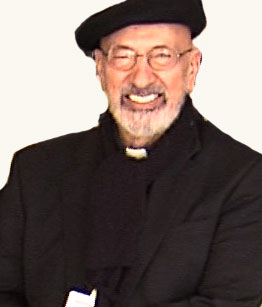
Gospel jn 1:1-18
and the Word was with God,
and the Word was God.
He was in the beginning with God.
All things came to be through him,
and without him nothing came to be.
What came to be through him was life,
and this life was the light of the human race;
the light shines in the darkness,
and the darkness has not overcome it.
A man named John was sent from God.
He came for testimony, to testify to the light,
so that all might believe through him.
He was not the light,
but came to testify to the light.
The true light, which enlightens everyone, was coming into the world.
He was in the world,
and the world came to be through him,
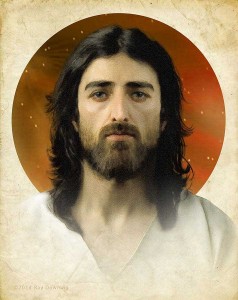
but the world did not know him.
He came to what was his own,
but his own people did not accept him.But to those who did accept him
he gave power to become children of God,
to those who believe in his name,
who were born not by natural generation
nor by human choice nor by a man’s decision
but of God.
And the Word became flesh
and made his dwelling among us,
and we saw his glory,
the glory as of the Father’s only Son,
full of grace and truth.
John testified to him and cried out, saying,
“This was he of whom I said,
‘The one who is coming after me ranks ahead of me
because he existed before me.’â€
From his fullness we have all received,
grace in place of grace,
because while the law was given through Moses,
grace and truth came through Jesus Christ.
No one has ever seen God.
The only Son, God, who is at the Father’s side,
has revealed him.
This entry was posted on Thursday, December 25th, 2014 at 6:57 am
You can follow any responses to this entry through the RSS 2.0 feed.
[powerpress]
USCCA4- Episode 4- Bring About the Obedience of Faith
 Archbishop Lucas offers insights on the US Catholic Catechism for Adults Chapter 4:
Archbishop Lucas offers insights on the US Catholic Catechism for Adults Chapter 4:
God makes himself known to us through Revelation in order both to give us something and to draw a response from us. Â Both this gift of God and our response to his Revelation are called faith. Â By faith, we are able to give our minds and hearts to God, to trust in his will, and to follow the direction he gives us.
The Most Reverend George J. Lucas leads the Archdiocese of Omaha.
For other episodes in the visit our Archbishop George Lucas page
This programs is based on:
More information can be found here.
We wish to thank the USCCB for the permissions granted for use of  relevant material used in this series.
Also we wish to thank Omar Gutierrez and Denise Wharton for their vocal talents in this episode.
Â
This entry was posted on Tuesday, December 23rd, 2014 at 1:18 pm
You can follow any responses to this entry through the RSS 2.0 feed.
[powerpress]
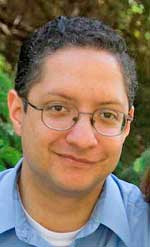
Omar F. A. Gutierrez
Episode 4 – Regnum Novum: Bringing forth the New Evangelization through Catholic Social Teaching with Omar Guiterrez – Value 4 Truth, Freedom, Justice, and Love part 1 “Truth and Freedom”
From episode … 4. Truth, Freedom, Justice, and Love part 1 “Truth and Freedom”
These are the four values of the Social Teaching of the Catholic Church as they’re enumerated in the Compendium and as they were laid out by, again, Blessed Pope John XXIII in Mater et magistra and Pacem in terris. Without these values, the work of social justice becomes an albatross around our necks. It pulls us down, threatening to poison all the work we do, no matter how well intentioned.
When charity lacks truth, as Pope Benedict XVI states, it can be filled with every whim and agenda and becomes the opposite of itself. Truth is the truth of the fundamental dignity of the human person, a dignity we can only fully appreciate in the encounter with Christ.
A freedom that requires self-destruction is no freedom at all. Authentic freedom is the ability to do what is good, but this requires that we know the truth about the good.
(Justice and Love covered in proceeding episodes)
True social justice requires that we drop these paradigms of opposition: management vs. labor; bourgeois vs. proletariat; state vs. individual. We own the great Catholic both/and. It applies to the Social Teaching of the Catholic Church more than ever.
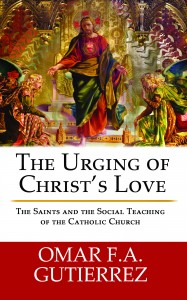 Omar F. A. Guiterrez, M.A. , Special Assistant to Archbishop George Lucas of the Archdiocese of Omaha. He’s also the author of “The Urging of Christ’s Love: The Saints and The Social Teaching of the Catholic”
Omar F. A. Guiterrez, M.A. , Special Assistant to Archbishop George Lucas of the Archdiocese of Omaha. He’s also the author of “The Urging of Christ’s Love: The Saints and The Social Teaching of the Catholic”
Also visit Omar’s “Discerning Hearts” page Catholic Social Teaching 101
This entry was posted on Tuesday, December 23rd, 2014 at 1:08 pm
You can follow any responses to this entry through the RSS 2.0 feed.
[powerpress]
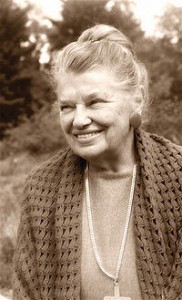
“Faith is the father of love, faith is the father of hope also, and its in faith, and faith alone, that we can plunge ourselves, like in a warm sea, to swim the strange currents that will come our way.”
On the beginning of unity “…you become a prayer…you contemplate God, because He always contemplates you…see how simple it is?”
To learn more about Catherine Doherty visit www.madonnahouse.org
Tags: alone, Catherine Doherty, faith, father, love
This entry was posted on Monday, December 22nd, 2014 at 8:42 pm
You can follow any responses to this entry through the RSS 2.0 feed.
From Anthony’s “Beginning to Pray” blog
Blessed Elisabeth of the Trinity helps us open our hearts to the coming of Christ. Â On the twelfth day of her Last Retreat, she offers a reflection on “the Word became flesh and dwelt among us.” Â Jesus has come to give us peace through opening up access to the Father’s house.
Whoever sees Christ sees the Father, and to see this love is to find that for which our hearts most long. Â This seeing, this contemplation, this knowledge is by faith. Â Here, faith is no mere assent to a body of information but a contemplative reality that seeks the saving truth and savors it. Â Faith is an encounter with the One whom the truths of our faith bear to us, and we believe what the Church proposes to us because we want to know Him. Â Whoever has surrendered his personal existence in response to the surpassing totality of love revealed by Christ crucified, this soul has gained access to the Father’s house, the freedom to go to our real spiritual home, the liberty that leads to our true peace.
Blessed Elisabeth sees the peace of Christ through the eyes of Saint Paul. Â Through the Blood of the Cross, the Lord leads all oppressive “Principalities and Powers” away “as captives, triumphing over them in Himself” (Col 2:15). Â Without the knowledge of Christ’s love, our dignity is vulnerable to all kinds of dehumanizing forces. Â But with the surpassing love we know in Christ Jesus, we are free from every form of irrational oppression — indeed, rather than rob of us dignity, the Lord permits all kinds of spiritual hardships only so that we might know the full extent of the greatness He calls us to and makes possible in our lives.
What the Apostle beheld in terms of oppressive cosmic forces, the Mystic of Dijon applies to our psychological powers.  Our interior battle with ambiguity and darkness in terms of our own patterns of thought and behavior is part of a cosmic struggle where evil powers attempt to overcome the light.  Just as Christ has taken diabolical powers captive, He also takes our psychological powers captive so that the ambiguity and confusion the emerges from them no longer robs us of our dignity as long as we persevere in believing in His love.  Her application  sees beyond the darkness of our interior frustrations to see the limitlessness of His mercy.
Beholding the unsurpassable love of the Lord, she understood how our limited powers of imagination, emotion, intuition, cognition and volition often hold us back. Â Without the Word of the Father, these powers subject us to a labyrinth of fears, anxieties, false judgments because they are subject, not to the truth, but to sin and disintegration. Â Left to their own, the powers of our soul frustrate that peace for which our hearts truly long.
Blessed Elisabeth also knew that Christ has the power to captivate, to hold even our own psychological powers captive. Â He does not lead our psychological powers by oppression and He is never violent. Â He attracts. Â He fascinates. Â He captivates – because in Him is the fullness of God, in Him all that is good, holy and true about humanity is revealed. Â His love is that beautiful and she knew this and longed for her friends to see it too. Â To see this love is to be freed from sin, to be raised up, to be capable of true praise.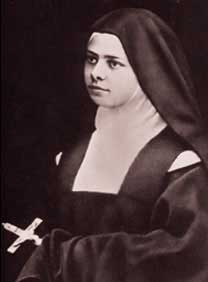
Techniques and methods rooted primarily in our own powers lack the freedom to achieve moral rectitude and cannot access the peace of the Father’s house. Â Instead, Blessed Elisabeth invites us this Advent to allow our hearts to be drawn into a greater silence and solitude. Â The surpassing love of Christ is known in our weakness, poverty, and thirst. Â By humbling accepting this poverty of heart, the beatitude of His presence is ours.
Our faith truly accesses God. Â Instead of attempting spiritual feats of devotion, Blessed Elisabeth invites us to simply surrender to His presence breaking in all around us. Â To turn our thoughts to His great love is already to lift up our hearts. Â To waste time thinking on what He has done for us by humbly entering our human poverty, this is already to begin to taste eternity.
He is the light in the darkness and the darkness cannot overcome Him. Â So in the inconvenience and difficult of our poverty and lack of love, He remains, waiting for us so that we, each of us, is awaited by an uncommon love. Â She invites us to allow ourselves to be captivated: this Word, the Word made flesh, does not disdain humble humanity but cherishes his own birth in its frail freedom.
Tags: Anthony Lilles, faith, hearts, love
This entry was posted on Monday, December 22nd, 2014 at 8:28 pm
You can follow any responses to this entry through the RSS 2.0 feed.
[powerpress]
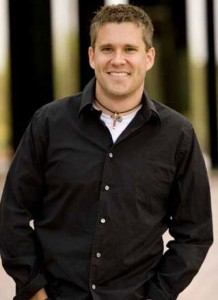 The Sunday, Sunday, Sunday Podcast is a reflection on the upcoming Sunday Mass readings presented by LifeTeen.com and hosted by Mark Hart.
The Sunday, Sunday, Sunday Podcast is a reflection on the upcoming Sunday Mass readings presented by LifeTeen.com and hosted by Mark Hart.
Sunday Readings from the USCCB
Reading 1 2 sm 7:1-5, 8b-12, 14a, 16
Responsorial Psalm ps 89:2-3, 4-5, 27-29
Reading 2 rom 16:25-27
Gospel lk 1:26-38
The angel Gabriel was sent from God
to a town of Galilee called Nazareth,
to a virgin betrothed to a man named Joseph,
of the house of David,
and the virgin’s name was Mary.
And coming to her, he said,
“Hail, full of grace! The Lord is with you.â€
But she was greatly troubled at what was said
and pondered what sort of greeting this might be.
Then the angel said to her,
“Do not be afraid, Mary,
for you have found favor with God.
“Behold, you will conceive in your womb and bear a son,
and you shall name him Jesus.
He will be great and will be called Son of the Most High,
and the Lord God will give him the throne of David his father,
and he will rule over the house of Jacob forever,
and of his kingdom there will be no end.â€
But Mary said to the angel,
“How can this be,
since I have no relations with a man?â€
And the angel said to her in reply,
“The Holy Spirit will come upon you,
and the power of the Most High will overshadow you.
Therefore the child to be born
will be called holy, the Son of God.
And behold, Elizabeth, your relative,
has also conceived a son in her old age,
and this is the sixth month for her who was called barren;
for nothing will be impossible for God.â€
Mary said, “Behold, I am the handmaid of the Lord.
May it be done to me according to your word.â€
Then the angel departed from her.
Lectionary for Mass for Use in the Dioceses of the United States, second typical edition, Copyright © 2001, 1998, 1997, 1986, 1970 Confraternity of Christian Doctrine;
This entry was posted on Saturday, December 20th, 2014 at 3:26 pm
You can follow any responses to this entry through the RSS 2.0 feed.
[powerpress]
AR-SP2- THE GIFT OF HOLINESS AT CHRISTMAS w/ Fr. Mauritius Wilde O.S.B., PhD. 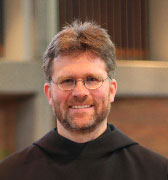
This reflection was given during a special advent evening of prayer and meditation service at St. Margaret Mary’s Church, in Omaha, NE on December 16. Fr.Mauritius  was joined by Deacon James Keating PhD. This if the second of two talks
Father Mauritius Wilde, OSB, Ph.D., did his philosophical, theological and doctoral studies in Europe. He is the author of several books and directs retreats regularly. He serves as Prior of our monastery in Schuyler.
 For more information about the ministry of the the Missionary Benedictines of Christ the King Priory in Schuyler, Nebraska visit here:
For more information about the ministry of the the Missionary Benedictines of Christ the King Priory in Schuyler, Nebraska visit here:
This entry was posted on Wednesday, December 17th, 2014 at 2:27 pm
You can follow any responses to this entry through the RSS 2.0 feed.
[powerpress]
AR-SP1- THE GIFT OF HOLINESS AT CHRISTMAS w/ Deacon James Keating, Ph.D.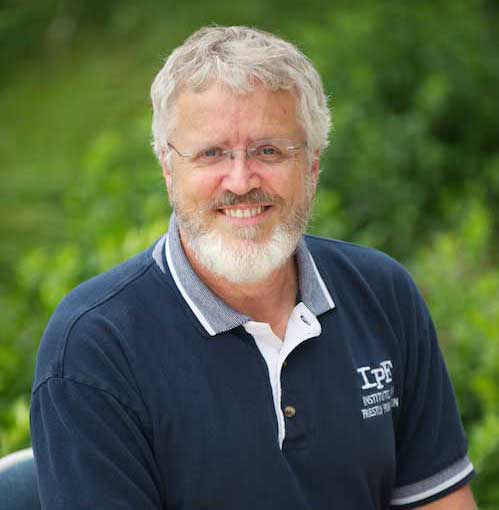
This reflection was given during a special advent evening of prayer and meditation service at St. Margaret Mary’s Church, in Omaha, NE on December 16. Deacon Keating was joined by Fr. Mauritius Wilde OSB. This if the first of two talks.
Deacon James Keating, PhD, the director of Theological Formation for the Institute for Priestly Formation, located at Creighton University, in Omaha, is making available to “Discerning Hearts†and all who listen, his series of programs entitled “The Heart of Hopeâ€.
For more information on the “Institute of Priestly Formation†and for other material available by Deacon Keating, just click here
Don’t forget to pickup a copy of “Communion with Christ†, it is one of the best audio sets on prayer…ever!
This entry was posted on Wednesday, December 17th, 2014 at 2:10 pm
You can follow any responses to this entry through the RSS 2.0 feed.
[powerpress]

Omar F. A. Gutierrez
Episode 3 – Regnum Novum: Bringing forth the New Evangelization through Catholic Social Teaching with Omar Guiterrez - Value # 3 – Look , Judge, Act – Communion not opposition
Blessed Pope John XXIII gave us this practical suggestion in his letter Mater et magistra. The Social Doctrine provides us with principles for reflection, criteria for judgment, and directives for action. Social justice is supposed to be lived out in our every day. That’s the point, and so this Holy Father gave us the paradigm.
Look at the world around you, that which is most immediate to you. Start with your family. Proceed to your culture. Witness the social and economic realities/policies near you. Know the political landscape of your city, county, state, and nation. See your neighbors close at hand and around the world. Use the principles of the Social Teaching as you look so that you know what to look for.
Judge what is best for the family, for the culture, for the society and the economy, for the state, for the world. Use the criteria provided by the Social Doctrine. What is missing? Why is it missing? What can be done?
True social justice requires that we drop these paradigms of opposition: management vs. labor; bourgeois vs. proletariat; state vs. individual. We own the great Catholic both/and. It applies to the Social Teaching of the Catholic Church more than ever.
 Omar F. A. Guiterrez, M.A. , Special Assistant to Archbishop George Lucas of the Archdiocese of Omaha. He’s also the author of “The Urging of Christ’s Love: The Saints and The Social Teaching of the Catholic”
Omar F. A. Guiterrez, M.A. , Special Assistant to Archbishop George Lucas of the Archdiocese of Omaha. He’s also the author of “The Urging of Christ’s Love: The Saints and The Social Teaching of the Catholic”
Also visit Omar’s “Discerning Hearts” page Catholic Social Teaching 101
This entry was posted on Tuesday, December 16th, 2014 at 8:03 pm
You can follow any responses to this entry through the RSS 2.0 feed.
USCCA3- Episode 3- Proclaim the Gospel to Every Creature
[powerpress]
 Archbishop Lucas offers insights on the US Catholic Catechism for Adults Chapter 3:
Archbishop Lucas offers insights on the US Catholic Catechism for Adults Chapter 3:
Blessed John XXIII and the Second Vatican Council itself illustrate how the Church constantly draws upon Tradition and Sacred Scripture.  This chapter examines these foundations of the Church teaching because its through Tradition and Scripture that the Church knows God’s Revelation and transmits it from one generation to another.
The Most Reverend George J. Lucas leads the Archdiocese of Omaha.
For other episodes in the visit our Archbishop George Lucas page
This programs is based on:
More information can be found here.
We wish to thank the USCCB for the permissions granted for use of relevant material used in this series.
Also we wish to thank Deacon Chuck Adams and Denise Wharton for their vocal talents in this episode.
This entry was posted on Monday, December 15th, 2014 at 3:31 pm
You can follow any responses to this entry through the RSS 2.0 feed.
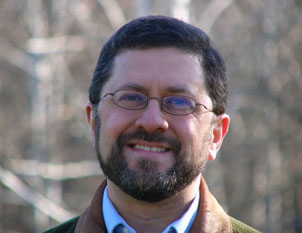 Episode 1 – Witnesses to Tradition. A grand overview of Church tradition as passed down to us by the Fathers of the Church…it’s scope and relevance for our lives today!
Episode 1 – Witnesses to Tradition. A grand overview of Church tradition as passed down to us by the Fathers of the Church…it’s scope and relevance for our lives today!
[powerpress]
Roots of the Faith – From the Church Fathers to You with Mike Aquilina, makes clear that just as an acorn grows into a tree and yet remains the same plant, so the Catholic Church is a living organism that has grown from the faith of the earliest Christians into the body of Christ we know today. Hosted by Kris McGregor
Also visit Mike’s “Discerning Hearts” page for more audio downloads and information!
This entry was posted on Thursday, December 11th, 2014 at 6:12 am
You can follow any responses to this entry through the RSS 2.0 feed.



